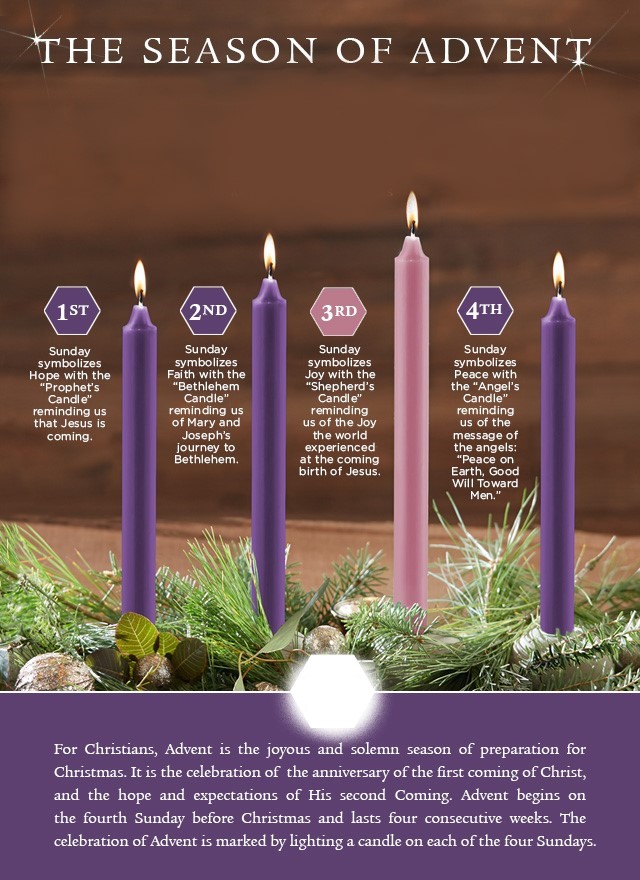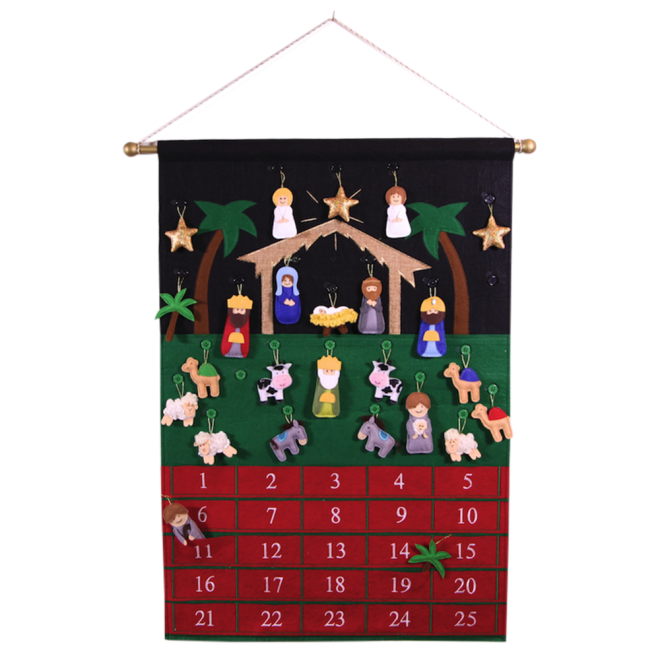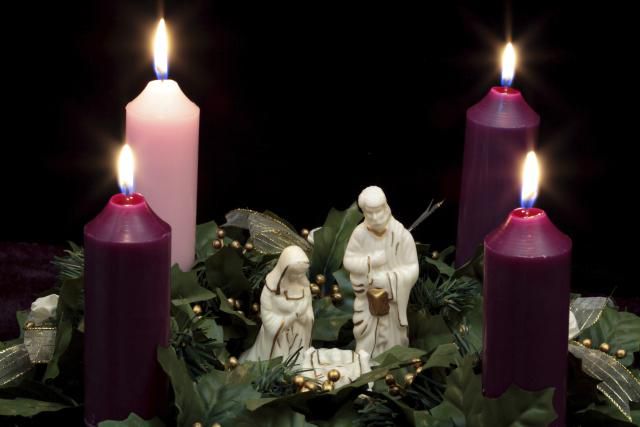Join Our Email List
Please consider clicking the link below and joining our email list. Help support our ministry, and the mission church in Fairbanks, Alaska.
Who Advent?
So, I have been working through Advent here, and now, on this last day of Advent, 2019, I am wrapping this up. It may have appeared that I was going to cover the whole of those classic journalistic questions; who, what, where, when, why, and how, but I don’t think I really need to. In my first essay, entitled Why Advent, I actually covered why, what, and when. In my second essay, entitled How Advent I covered how and where. Wrapping things up I will simply be covering who, that is who is advent for?
Obviously, on one level it is easy to explain that the season of Advent exists as a part of the church calendar, and therefore the season of Advent is for Christians, it is specifically part of the Church calendar to help Christians remember the the first coming of Christ, and to help them look forward, with hope and anticipation to His second coming. Obviously neither Muslims, Jews, Hindus, atheists, or anyone outside of the Christian faith do not, and will not celebrate Advent, therefore it is not for them.
Yet, I would argue that Advent is for everyone. Advent is for the whole world. This makes sense when we focus on who. Not who is Advent for, but rather who is Advent about. Advent is about the coming of Jesus Christ, the King, not only of the Jews (which is what caused all of that consternation for Herod), but ultimately the King of the world (which is why those Gentile magi from the east came and spoke to Herod in the first place).
The world can deny it, and deny Him all they want, but it doesn’t change anything. He is King, He has come, and He is coming. This past Sunday, the last Sunday of Advent, I preached on Psalm 96, and I will close these few short posts on Advent with words from that sermon…
THEY MAY NOT BELIEVE, AND THEY MAY NEVER BELIEVE, BUT THE GOOD NEWS IS FOR THEM AS WE PROCLAIM IT, REGARDLESS OF WHAT THEY SAY, REGARDLESS OF WHY THEY SAY IT, WE DECLARE THAT THE WORLD HOLDS TOGETHER BECAUSE OF HIS STRENGTH, AND WE DECLARE THAT THE NATIONS WILL BE JUDGED BECAUSE OF HIS STRENGTH. AS ONE PASTOR SAYS, “THE NEW SONG OF PSALM 96 IS THE GOOD NEWS OF YAHWEH’S SALVATION, WHICH COMES WHEN HE JUDGES THE WORLD IN RIGHTEOUSNESS. THE GOOD NEWS IS GOOD NEWS OF PEACE, A PEACE GAINED BY RIGHTEOUS VICTORY.”
THEREFORE, OUR CALL ON THIS CHRISTMAS IS TO NOT ONLY CONTINUE TO TELL THE STORY, BUT TO BE ENCOURAGED IN ITS TELLING. NOT ONLY IS IT A TRUE STORY, BUT IT IS THE STORY…
So, lead on oh King eternal, and Merry Christmas!
Recent Sermons
My sermons are now being posted on the CRC Fairbanks website, and can be found here…
How Advent?
Now that the first Sunday of Advent 2019 has come and gone, and we are already well into the season, it seems appropriate to discuss how the Church, and Christians can mark and celebrate Advent.
Before going any further we must acknowledge that in terms of the Calendar of the Church Advent has come to refer to a couple different things. First, the Church has traditionally set out the four Sundays before Christmas as the Sundays of Advent, but this, over time, has grown into a 24 day countdown to Christmas beginning on December 1. So, some people may think of the four Sundays before Christmas when they hear the word Advent, and some may think if the 24 day countdown, and some may even think of both. This year, 2019, it has been very neat and tidy because the first Sunday of Advent fell on December 1, but it can actually fall anywhere between November 27 and December 3.

The Church marks Advent in several ways. Usually a wreath of evergreens is put up in the church on the first Sunday of Advent. This wreath will have four candles (of various colors) and often a white Christ candle in the center. One candle is lit each Sunday, so that by the fourth Sunday all four candles are burning brightly, and then on Christmas Eve, or Christmas Day the Christ candle will be lit. Each Sunday a different theme is the focus of the day; Hope, Faith, Joy and Peace (see above). Much of the symbolism is straightforward. The wreath, a circle, represents God with no beginning and no end. The evergreens represent the hope of eternal life through Jesus Christ. The candles lit each week represent the increasing light of Christ coming into the world, a movement from darkness into light, culminating with the Christ candle being lit on Christmas. Churches that focus on Advent during this time do not drift into early Christmas celebrations by singing carols, but rather focus on the good and solid Advent hymns of the faith. Although many of these have been long forgotten, most hymnals will have an advent section and you can find some of these hymns there.
The 24 day Advent countdown is usually marked by various Advent calendars in the home. Each day may have some scriptures, or even a treat or small gift. It has become a way for families, especially families with children, to help mark time as they count down the days until Christmas.
One example of a fun Advent Calendar based on the Nativity.

Finally, after reading through all of this you may be wondering how one might mark Advent in the home? That was the whole point of this essay, right? First, let me say that there is no right or wrong way. Also, if you have small children at home this is a great time to start marking Advent, but remember that a good rule of thumb with young children is brevity. What we do as a family is to begin with embracing what our church family is doing. We have a smaller Advent wreath in the home, and each Sunday (usually after church) we have a small devotional with several Scripture readings while one of the children lights the candles for that week. We will sing a verse or two of an Advent hymn, our family favorite being “O Come, O Come Emmanuel.” We also have a fun Advent calendar (a log cabin with 24 compartments behind windows and doors) and we mark the days of Advent by each child taking their turn opening the compartment, and handing out small gifts, after we have read through an Advent calendar book with different Scriptures and prayers for each day. Also, in each compartment is a single puzzle piece, and over the course of the 24 days the children put together a puzzle with a picture of the nativity on it, the last piece being baby Jesus in the manger on December 24.
So, may God be with you this Advent as you move from darkness into light!
Why Advent
How important is tradition? I can’t say that I found myself, as a kid growing up in the 80’s and 90’s, surrounded by people and circumstances that made much of anything out of tradition. Sure, we had some that we followed, but it all kind of just happened accidentally. My brother and I took our hats off whenever we were inside, as we were taught, but that was still fairly common back then. My dad always took us fishing on the opening day of Bass season, and my brother and I always got the opening day of deer season off from school so that we could go hunting. There were some other traditions, though, that our family had which still seem to defy explanation. There always seemed to be tomato juice at Thanksgiving. Each year I couldn’t wait to get my glass of tomato juice with my Thanksgiving meal, and I would dutifully sprinkle some pepper into it just like I saw my parents do, and, with great anticipation, I would take that first tentative sip, and suddenly be reminded, all over again, how disgusting tomato juice really was. So much for tradition.
Actually, there was one that I always think about fondly, and have actually passed down to my family. Each Christmas, before we ever opened any presents, my parents made sure that we sang Happy Birthday to Jesus. It is quaint, maybe even cute, but it stuck enough that I make sure we do it as a family every year.
I don’t know why the idea of tradition seemed so distant back then. I am sure it had to do with growing up an evangelical protestant during those decades. So many evangelicals, especially during that time period, I think, had the same kinds of experiences that my mom did. They may have grown up in the church, but if they did it was a mainstream denomination (my mom grew up Roman Catholic) and when they embraced Christianity of the evangelical variety they became wary, or were taught to be wary of any of the former church traditions. This is certainly understandable, but it is also quite a shame. I think that we need to recapture some of these things, the best of them, and we need to realize that if every single aspect of our lives is to be taken captive for Christ, then the best starting point for that endeavor is God’s Word. Of course, the historic Church, in her wisdom, came up with lots of different mechanisms for His Word, and by extension, the life of Christ to become embedded into the lifeblood of His body.
Why Advent?

Well, why not?
It has been in place, and part of the Church Calendar since the 6th century, it is the beginning of the Church Year, and it focuses our attention on the comings of Christ (past, present and future). One source states that the season of Advent
…begins four Sundays before Christmas in Western Churches and is considered the beginning of the ecclesiastical year. […] Biblical themes stressed during Advent include the many Old Testament prophecies of the coming of the Messiah and of the Lord’s impending judgment against sin. Thus, Advent celebrates the anticipation of both the “first coming” of Christ at his incarnation and his “coming again” as judge of the world (Acts 17:31) and vindicator of his faithful witnesses (Rev. 6:9).
So, we mark and celebrate Advent as a family, and we will do so as a church, and I encourage each and every one of you to do your best to embrace the wonderful time of year. I will, over the next week or so continue discuss this here, covering the what of Advent, and finally the how of Advent. So, I encourage you to stay tuned in, as there is much more to come.
Finally, I will leave you with this recent quote from Peter J. Leithart, which I think sums up nicely the answer to our question, “Why Advent?”
According to the Christian calendar, the year ends a week from Saturday, on November 30. New Year’s Day is the First Sunday of Advent, December 1. […] We don’t keep the rhythms of the church calendar out of traditionalism. We mark time Christianly in order to honor Jesus, the Lord of ages whose Advent starts a new age of human history. We observe the church calendar to evangelize time.
In Christ’s service and yours,
Pastor Jason
